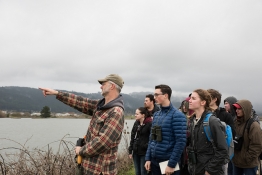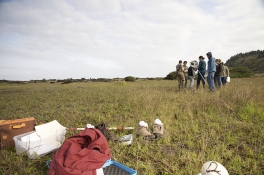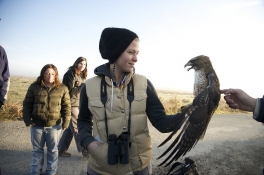Academics & Options
Our Bachelor and Masters of Science degrees in Wildlife focus on
APPLIED VERTEBRATE ECOLOGY.
That means studying the distribution and abundance of species (ecology), with an emphasis on mammals, birds, reptiles, and amphibians (vertebrates). This information is applied to real-world issues to help inform conservation and management decisions for species and their habitats.
Undergraduate
Students receive rigorous academic training in the classroom and in the field through a series of ecology and wildlife management courses that cover large mammals, waterfowl, upland game, and non-game (e.g. herps, shorebirds, birds of prey, or neotropical passerines).
The program includes specialized upper-division courses in advanced ornithology, behavioral ecology, conservation biology, energetics, animal behavior, population ecology, upland habitats, wetlands, and wildlife diseases. Under the supervision of a professor, students will conduct independent research and complete a senior thesis.
Catalog Information
Graduate Program
Cal Poly Humboldt's Wildlife graduate program is an option within the Natural Resources graduate program. It emphasizes research on wildlife species, behavior, and habitat requirements within the complex ecological interactions that govern the outcome of various land use practices.
For information about application procedures for the program, read the general guidelines for graduate school admission. Prospective students are encouraged to contact individual Wildlife faculty members as potential graduate advisors.






